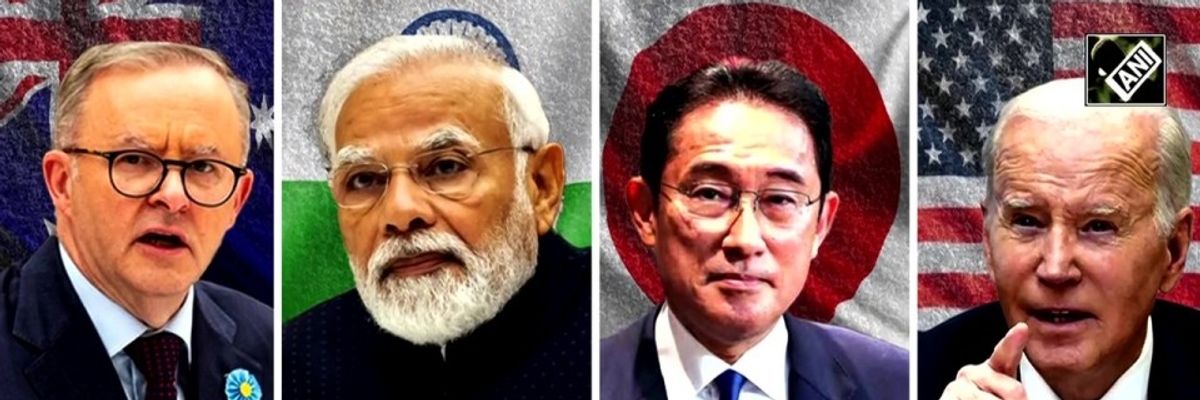The third in-person Quad summit’s joint statement was a lengthy summary of initiatives new and old. The summit of the four nation grouping (comprising Australia, India, Japan, and the United States) was held in Hiroshima, Japan after the cancellation of the original plan to hold it in Australia.
The new ones were clean energy supply chains, a broader health partnership beyond the COVID crisis, a focus on undersea cables, plans for investment in critical technologies, better sharing of climate data, deployment of an Open RAN telecommunications network in Palau, and a fellowship program for infrastructure practitioners, among others.
A new working group on counter-terrorism, announced in New Delhi during the Raisina Dialogue in March, was reiterated in the text.
The statement also repeated what have become stock phrases and themes in minilateral diplomacy in Asia that involves the United States: “rules-based international order,” “freedom of navigation and overflight,” “sovereignty” and “territorial integrity.” Also stated was opposition to “militarization of disputed features (and) the dangerous use of coast guard and maritime vessels,” and “destabilizing or unilateral actions that seek to change the status quo by force or coercion.”
Almost all of these are, of course, clear references to China — without taking its name. This has been the standard Quad approach, reportedly in deference to India’s reservations.
A few elements in the statement however are curious. Whereas “ASEAN centrality” is emphasized — indeed a paragraph is dedicated to praising ASEAN’s role — the text also speaks of “respect” for two additional organizations, the Pacific Islands Forum (PIF) and the Indian Ocean Rim Association (IORA), as being at the “center of the Quad’s efforts.” Does this indicate a dilution of the ritual centering of ASEAN in previous joint statements? In comparison, the 2022 text mentioned only “support” for the PIF and contained no references to IORA. This is a space worth watching.
The statement also contains more detailed language on Ukraine, mentioning “sovereignty” and “territorial integrity,” speaking of “deep concern over the war” and recognizing “its serious impacts on the global economic system.” Russia is not named as an aggressor — in fact, as in the 2022 summit, it is not named at all. But different from the 2022 proclamation, the text also speaks of the four states being “committed to dialogue and diplomacy,” while qualifying it with support for a peace “consistent with the UN Charter.”
Does it indicate an openness, however limited, to a diplomatic push by the Biden administration that involves India? Only time will tell.
But as a grouping supposedly dedicated to public goods outcomes, there is little information on how the torrent of the Quad’s initiatives that we have seen in recent years has performed so far and what exactly has been delivered. The Quad vaccines initiative, announced with great fanfare in 2021, fell well short of expectations.
There appears to be some progress on the maritime domain awareness initiative, with a pilot program mentioned in the text. The first batch of Quad STEM fellowships will begin their university studies in the United States. But all this doesn’t add up to a whole lot considering that the Quad has been in existence for more than five years in its second incarnation.
Ironically, the one area where the four Quad countries may have made the most progress jointly is one that the grouping has officially distanced itself from — an explicitly security and military dimension in terms of interoperability and the four-nation Malabar exercise. The Quad’s maritime domain awareness initiative is aimed at combating illegal fishing and climate change, but also has potential military utility.
It appears that while the Quad’s verbal energies are in talking up a raft of developmental and public goods initiatives, its report card looks positive mostly in the military or potentially military-related spheres. This may reflect the deeper aims and motivations of drawing India into a Washington-led security bloc.
If the Quad is truly aimed to project the United States as a partner more attractive than China among Global South states in the region, it will need to demonstrate real actions on the ground that benefit the people of the region. Until it does that, its stated goals will remain largely aspirational.
















